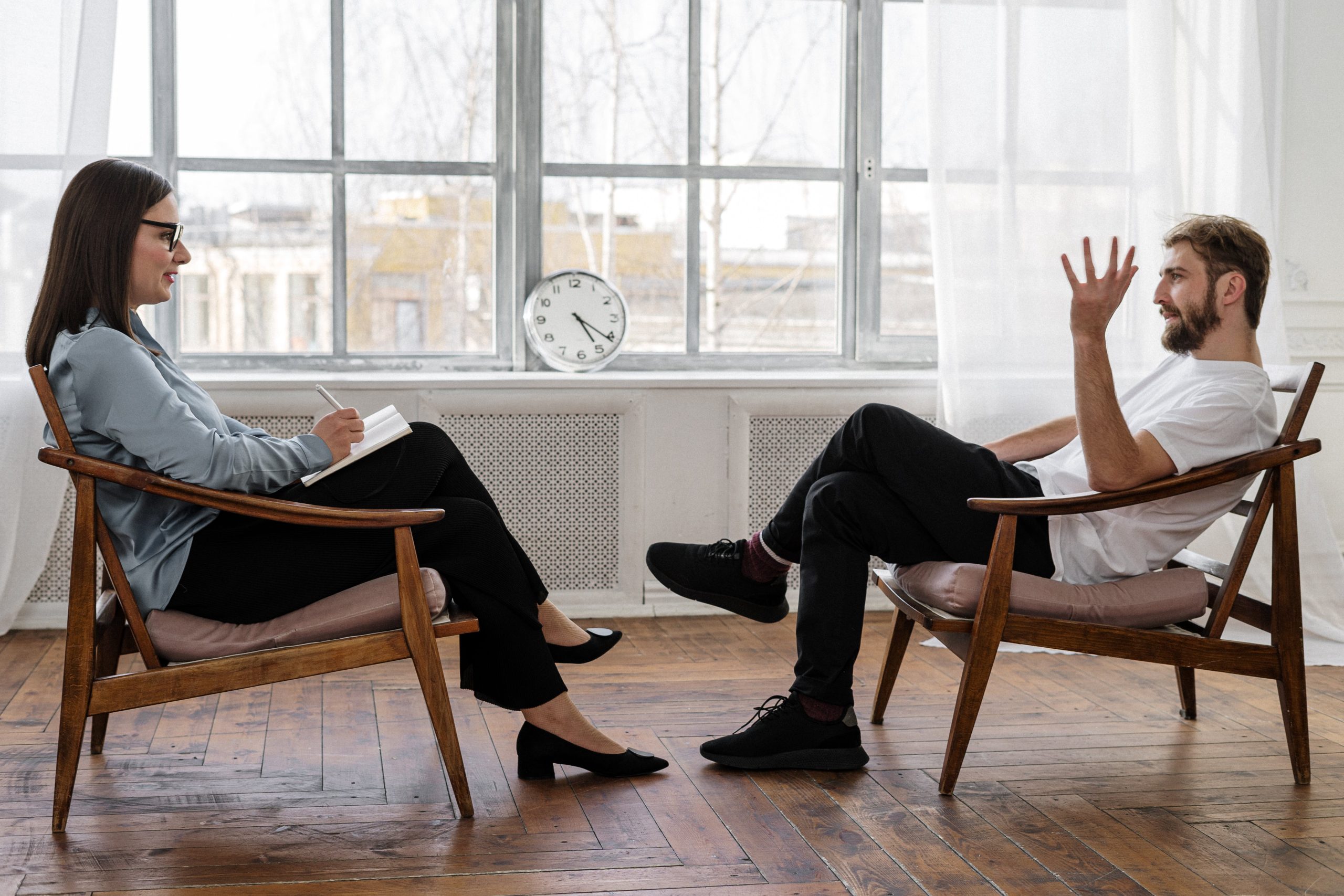Podcast: Play in new window | Download
Subscribe: Apple Podcasts | RSS
In this engaging episode of the CFStrong podcast, co-host Brad Dryburgh explores the intricate relationship between cystic fibrosis (CF) and mental health.
The third episode of the series features candid insights from six guests – all in their 20s – as they share their personal journeys and strategies in navigating the complex intersection of CF and mental well-being.
From the challenges of social anxiety and the pressure to explain their disease to others, to the impact of CF on life choices and the importance of seeking mental health support, the guests delve into the highs and lows of their mental health experiences.
This episode sheds light on the often-overlooked aspect of mental well-being within the CF community, offering a refreshing and informative perspective on the unique challenges faced by individuals living with cystic fibrosis.
Tune in to the Podcast to hear first-person stories, gain insights and discover coping strategies.
Transcript
Voiceover: Welcome to the CF Strong Podcast. CF Strong covers the successes and challenges faced by those living with cystic fibrosis. You’ll hear first-person stories, conversations with health professionals, friends and partners. Just a heads up, guests may share their personal views about treatments and health management, but please remember, this is not medical advice, and you should always follow the advice of your clinic team regarding your health.
Brad: G’day everyone and welcome to this incredibly exciting new season of the CF Strong Podcast. I’m your host and fellow CF patient Bradley Dryburgh. And as a 20-something-year-old living with cystic fibrosis, I know that this decade of our life is not only challenging, but rather it comes with some big questions we ask of ourselves. I’ve taken the time to sit down with six guests who like me, are all in their twenties living with cystic fibrosis as they share their honest and unique perspectives on 10 big questions across 10 separate episodes. I’ll ask one question of all six of our guests in this particular order. You can expect to hear answers from Adam, Blake, Caitlin, Ellie, Sam, and Tayla. In this third episode of our series, we’ll hear from each of our six guests as they answer whether their mental health has ever been affected by cystic fibrosis and if they have any strategies to help improve their mental health.
Adam: It’s a really tricky question, and it’s really loaded because CF affects everything that I do, whether I’ve realized it or not, like in a, in a way, the reason I’m a musician and the, the reason I love art is because I never saw the purpose in, you know, developing a career in something that will only give me money, that doesn’t actually give me anything of value. What I value is experience and, and relationships and things that bring me joy or, or passion, you know, things that are like lively and, and really human, you know, rather than money and statistics and, and houses and, and material things. I’m not really into that. That’s just not what I’m into. So CF has affected the way I drive my life, and in essence, essentially how my mind works. Like why, why I prefer going for walks, um, why I prefer contemplating things, why I would prefer playing the drums like this is all because I don’t see a value in the thing that everyone around me seems to, seems to push towards. Um, but if we get, if we go a little bit deeper, and I think about how CF has affected me mentally, um, there has been a lot of complex trauma and a lot of, a lot of anxiety around things which I’m starting to realize is, uh, is a byproduct of living with cf. Um, you know, things like being underweight, things like coughing in public and being scared that people think that I have COVID, you know, uh, social anxiety. These things have all occurred from having CF and, you know, some days I really don’t feel like explaining my disease to people. Some days I just want people to not acknowledge me and notice me at all. But, you know, um, it’s not always the case. So that’s another way that CF has affected me.
Blake: Well, yeah, again, I guess, um, it, it does go back to the fact that I have had a pretty good run with my CF in terms of, you know, all of the, uh, all the health stuff. I haven’t really had any major stays or anything like that, any major infections. Um, so that’s been one thing that has sort of kept me, you know, in, in pretty, you know, good, in good standings with my mental health. But, you know, there are times where, you know, it, it doesn’t really, it just mainly, I think if anything, it just stresses me out mentally, uh, just having to think about it all the time. But, uh, but pretty much just with what I do, there’s a lot of downtime and a lot of times when you’re not really, you know, there’s not a lot to do while you’re, you know, I do 20 minutes a night pretty much, and that’s work done. So there are a lot of hours in the day where I’m maybe thinking about it. Um, so I think my main strategy is I just try to keep myself busy, just try to do as many other things as I can and, uh, you know, I find, you know, the more productive I’m being throughout the day, the less time I have to think about other things, like, especially CF related. So, yeah, just keeping myself busy really.
Caitlin: I think mental health gets overlooked a lot with CF because there are so many physical components of CF. Um, it was definitely something that wasn’t looked at deeply enough for myself throughout my adolescence, and I’ve been very lucky now being, um, at my adult clinic that we have a really good psychologist on the team and someone I can talk to or reach out to, and my mental health has now become a lot more of a priority, but I definitely think, um, it gets overlooked a lot and people don’t realize how much it does get affected amongst everything we do have to deal with just with our everyday life.
Ellie: I’ve definitely been affected with mental health. Um, it’s one of those things that I also kind of struggled to talk about because I’ve sought therapy and, you know, been through kind of the social workers that come to clinic and everything like that, but never been formally diagnosed with anything. So while I like to say I struggle, I also am unsure how to speak about it from someone who can’t say that they like, have been formally, I guess, diagnosed with anything. Um, not that you need it to understand how you’re feeling, um, but I definitely have had a lot of like negative experiences from CF and also not, um, I think coming to terms with the fact that you’re probably not gonna be around as long as everyone else is a bit of a challenge. Um, it’s definitely kind of forced me to make some decisions that maybe you don’t have to make as um, as early. You definitely kind of grow up a lot quicker. I feel like when you, when you have cystic fibrosis, like, um, mom was very supportive and was there for me quite like, well through the whole journey, obviously. Um, but you’re also going to clinic and everything, you learn how to do all of those things yourself, and you kind of come to terms with these larger concepts around like, you know, life and making sure that you’re taking care of your health at quite a young age. So that’s definitely affected me in terms of, you know, if you don’t take care of yourself, you are, I guess, limiting yourself. Um, so that’s, that’s definitely been a struggle. Um, and I guess I have a lot of like anxiety, um, as well, which does also come from, from outside of CF, but I think having, you know, chronic health condition on top of that definitely kind of, you know, emphasizes how you’re feeling. Yeah.
Sam: Uh, the mental health side of things, it’s been something that’s kind of, uh, progressed over time. Um, there are so many highs and so many lows, and that’s just in life in general. Uh, the struggles I found with my mental health were kind of coming to terms with my CF at a younger age when I was about 16, 17, 18, and trying to learn how to be okay with it. I think I, I grew up and I felt some kind of shame about being sick, which is completely the wrong way to see it. And I had to learn how to view my, um, my health as, I guess a positive thing and a way that has made me stronger as a person and a resilient person and, uh, and to CF as not something that will hinder me, but gimme opportunities to become a better person. And the strategies I put into place, or when I was younger, the strategy was don’t think about it, ignore it or go away. And that, uh, that strategy soon imploded in itself. And I found myself stuck in a world where all I could think about was my CF and how it was affecting me, uh, the strategy I put into place. It was just about, I guess, uh, learning how to trust people around me to talk to them about my mental health, my physical health, using them as, um, just a buffer, and then finding the strength to no matter what, just keep pushing forward, being physically healthy, my physical, if my physical health is good, my mental health is good.
Tayla: Oh, um, I’m quite open to some family and my, and some friends with mental health. I struggle quite a lot with anxiety, um, like severe extreme anxiety, lots of panic attacks. Um, so advice kind of stuff, still working it out myself. Um, but like, yeah, talking about it helps sometimes. I mean, I’m still trying to get over that whole, like, um, if you talk about it, people are gonna think you’re absolutely crazy. Um, that’s just an insecure of my own insecurity of my own, I should say. Sorry, can’t English today. Um, but yeah, I think advice stuff, I guess being open, knowing that you’re not, you are not crazy. It’s kind of like a normal thing. Um, everyone gets anxiety, whether it be severe or just a little bit where they’re like, oh, gosh, that made me a little bit shaky. Um, or if you have a full-blown panic, panic, wow, I can’t talk. If you have a full-blown panic attack, um, it’s, it’s part of life. Everyone deals with it. It just, you can’t let it rule you. I guess kind of the same way with CF. You can’t let it be something that makes you go, oh, I have this so I’m not good enough. You can’t think, okay, well, I have anxiety and CF, that’s a double whammy. No one’s gonna wanna talk to me. So like, you just gotta take it one day at a time. Um, I’m kind of anxious talking about it now, but like, yeah, I think, yeah, that’s, I can’t really talk too much on it because I think it’s still something I’m very much struggling with. Um, and I’ve broken up with many psychologists and social workers. Um, but yeah, I think not everyone’s gonna get it, and that’s okay. Um, those that do will support you. Talk about it. Be open. If you’re struggling, don’t be like me and go, no, I can deal. Is it myself, talk up and go, Hey, I kind of need help with this. I’ve been dealing with it. And you, you’ll be surprised with how many people will cheer you on and kind of go, okay, well, let’s sort it.
Brad: Thank you so much for listening to this episode of our series. We thank you for taking the time to sit down and hear the value that each of our six guests provide, and we wanna thank them for taking the time to be a part of the series two, we hope that this has not only been informative, um, but refreshing to hear that there are many different perspectives to each of these questions and challenges we face as CF patients. Once again, I’m your host Bradley Dryer. Thank you so much for tuning in to the CF Strong podcast.
Voiceover: Thanks for listening to this episode of the CF Strong Podcast. Make sure you subscribe on your favourite podcast listening platform so you don’t miss the next episode. And if you enjoyed this podcast, we’d really appreciate if you could leave as a review. It helps other people find CF Strong or share us with your friends. Also, a quick reminder that the views expressed in the CF Strong Podcast may not be reflective of Cystic Fibrosis community cares viewpoints. The podcasts are designed to share information and provide insight into the lives of those living with cystic fibrosis around Australia. This podcast was made possible thanks to support provided by the Australian government. Thanks for listening, and we’ll talk to you next time.




